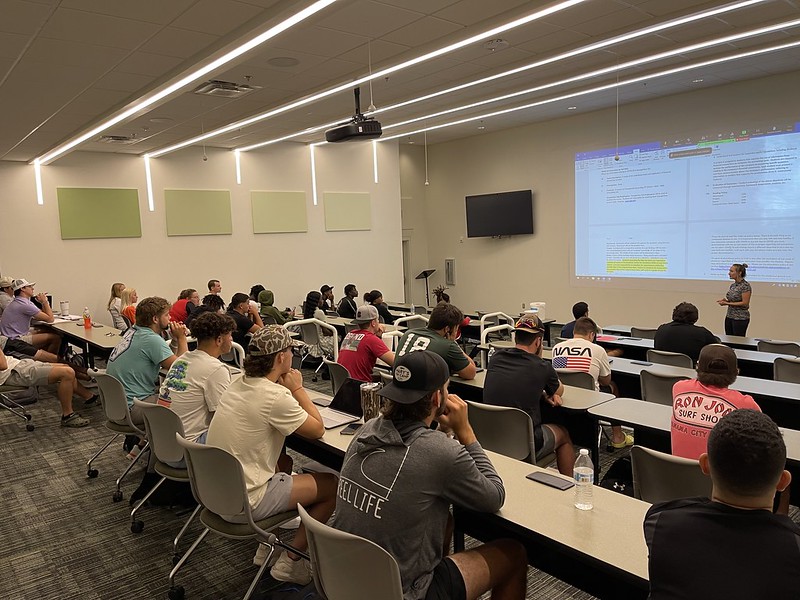Click on the topics below to learn more details about each aspect of maintaining F-1 status.
-
- Ensure that your local U.S. address is updated every semester. Visa law requires you to report your current U.S. phone number and U.S. address.
-
Log into your Banner Web account and clicking the Personal Information menu. Select View Address and Phones and click the link to update your contact information. Complete the fields online and click the Submit button.
Or a student may make the changes by completing a Change of Address/Name form and submitting it to the Office of the Registrar.
-
- Undergraduate full-time = 12 credit hours
- Only ONE online course (3 credits) may count toward full-time enrollment each semester.
- Any credits beyond the minimum full-time (12 hr) requirement may be online or in person (in-person is strongly encouraged).
- Students must actively attend all scheduled classes.
- Withdrawing from one or more courses may cause a student to drop below the minimum full-time enrollment requirements. Always speak to the DSO before making the decision to withdrawal.
- Summer is considered an official break. Students are not required to take any classes during the summer. (The only exception is if the Summer semester is the student’s first semester in F status.)
- Students may count classes that take place during a minimester/term B toward their full-time enrollment. The student must have been enrolled full-time for the entire semester by the end of the semester in order to maintain status. Example: An undergraduate student may enroll in 3 courses (9 credit hours) that take place during the whole semester, and 3 courses (3 credit hours) that take place during the minimester/term B, for a total of 12 credit hours overall in that semester.
- Regarding concurrent enrollment, in some situations students may be able to have courses taken at other SEVIS-approved institutions count toward their full-time enrollment at EGSC on a limited basis. Contact the DSO for more information.
If you need to take fewer credit hours than the minimum required because of valid reasons (listed below) and are currently holding an F-1 visa, you may request a Reduced Course Load (RCL). There are four valid reasons for an RCL:
-
- If a student is in their final semester and less than a full course load is needed to complete student’s program of study
- Academic Difficulty due to a) initial difficulty with English language or reading requirements, and/or b) unfamiliarity with U.S. teaching methods (first semester students only)
- Improper Course Level Placement
- Documented Medical Condition
See Reduced Course Load information below:
-
- During authorized RCL, you must be enrolled in at least one course which requires physical presence in order to remain in F-1 visa status.
- A reduced course load must consist of at least six semester or quarter hours (or half the clock hours for ELP students) required for a full course of study (unless otherwise recommended by a licensed medical doctor).
- If you wish to drop any classes, you are responsible for completing this step yourself. If the Add/Drop deadline has passed, you must arrange this with the Office of the Registrar. Here are the withdrawal page for the Registrar.
- If a student fears the possibility of doing poorly in a course but their situation is not reflected by the valid reasons listed, they are not eligible for a RCL based on academic difficulty.
- Instructor/Academic Advisor/Department Head recommendation or medical documentation is REQUIRED in order to authorize reduced course load requests.
- Students should only be authorized for one RCL for the reason of final semester; however, in a situation where they genuinely have to complete additional credit hours, or they happen to fail a class during a final semester RCL for which they must delay graduation and retake the class, they can be approved for a second RCL. No more than two RCLs for final semester will be approved.

